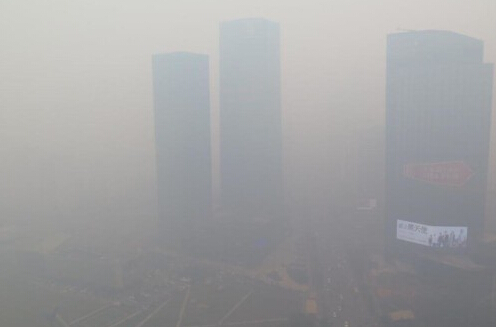 土
土(来源:沪江英语)
We all know we shouldn‘t eat dirt, but we do it anyway. Mostly not on purpose – dirt gets into our bodies all day, every day, whether we want it to or not. It’s understandably difficult to figure out exactly how much is getting in, but that might be beside the point.
我们都知道不该吃灰尘,但总会吃到。大多数时候都不是故意的——不管我们想不想,灰尘每天都从早到晚地进入我们体内。可以理解,想要准确计算我们每天吸入多少灰尘是很难的,但这并不重要。
We get our daily dirt allowance in all kinds of ways, from contaminated food, dust inhalation, and from not washing our hands before eating. The Environmental Protection Agency (EPA) has compiled an enormous amount of research on dirt consumption. About 45 percent of the stuff we inhale or inadvertently eat is soil, and 55 percent is dust.
我们每天以各种方式吸入灰尘,通过脏的食物、吸入的尘土、还可能是因为吃东西之前没洗手。环境保护署汇集了大量关于吸入灰尘的研究,我们吸入或无意间吃下去的大约45%是土,55%是灰尘。
The EPA numbers on unintentional dirt consumption focus on children, with one study reporting that babies from 6 weeks to 1 year old generally get 60 milligrams a day. From ages 1 to 20, that amount goes up to 100 milligrams a day. If you take those daily numbers and make them annual, that would be 36,500 milligrams or 1.3 ounces per year.
环境保护署关于无意间吸入灰尘的数据主要关注的是儿童。根据其中一项研究报告,6周到1岁的婴儿通常一天会吸入60毫克灰尘。从1岁到20岁,会增加到每天100毫克。如果以年为单位换算,就是每年36500毫克或1.3盎司。
Kids, as we all know, just love eating dirt, especially between the ages of 1 and 3. One researcher theorized that although childhood dirt-eating certainly is based in curiosity about the world and the new ability to play and grab, it could also be an effort to get some vitamins and minerals. Purposeful dirt-eating usually happens around a year old, which is when many babies stop breastfeeding, so maybe they‘re trying to regain some of that nutrition.
众所周知,孩子就喜欢吃灰尘,尤其是1-3岁的孩子。一个研究人员系统地指出,虽然儿童时期吃灰尘绝对是出于对世界的好奇,孩子也在锻炼玩和抓的新能力,但这种行为也能使孩子吸收一些维生素和矿物质。有意识地吃土通常发生在一岁左右,这时很多孩子断了母乳,他们可能是在努力摄取一些母乳中的营养。
However, some people keep eating dirt after early childhood, a condition called geophagy, or soil pica (pica is the habit of eating nonfood items). In American culture, geophagy is regarded with concern. Pica, in fact, is a recognized disease by the U.S. Agency for Toxic Substances and Disease Registry, with intentional dirt consumption of 500 milligrams a day qualifying as “pathological”. But historically, and in many other cultures, it‘s not so odd or abnormal to eat dirt. Some pregnant women in sub-Saharan Africa eat dirt to soothe stomach upsets during morning sickness or to add extra nutrients to the developing fetus’ body.
然而一些人过了幼儿期还会吃土,这种情况被称为食土癖或土壤异食癖(异食癖就是吃非食物东西的习惯)。在美国文化中,食土癖使人们很担心。其实异食癖是被美国有毒物质和疾病登记处认定的一种疾病,每天有意识地吃掉500毫克土就被认定为“病态”。但从历史上看,在很多其他文化中吃土没那么怪,也不算病态。一些撒哈拉以南非洲的孕期妇女吃土来缓解晨吐时肠胃不适或补充胎儿生长所需的额外营养。
So while there‘s definitely cause for concern about contaminated food and soil, maybe we don’t need to worry so much about inadvertent dirt consumption. It‘s only natural, right?
所以,虽然我们绝对有理由去担心脏的食物和土,但无意间吃的土可能真没必要太过担忧。这只是自然状况,对吧?





































































































